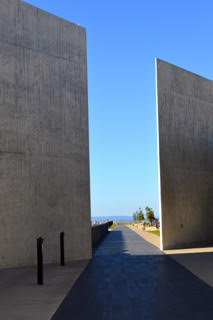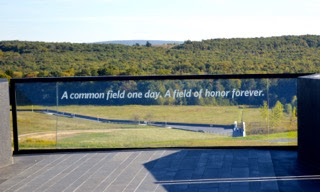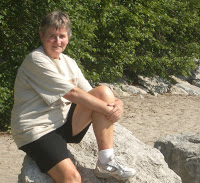I
thought I might begin with some really icky remark such as, every day is My
Happiest Day, but I just couldn’t bring myself to do it! Equally, I
couldn’t begin to pick out my very happiest days, never mind one single day. I
have been blessed, and the vast majority of my days have been happy, though
with some, inevitably, more so than others.
thought I might begin with some really icky remark such as, every day is My
Happiest Day, but I just couldn’t bring myself to do it! Equally, I
couldn’t begin to pick out my very happiest days, never mind one single day. I
have been blessed, and the vast majority of my days have been happy, though
with some, inevitably, more so than others.
But,
on giving the topic some serious thought, I decided that I owe the presence of
this multitude of Happy Days to the few bad ones. They were the days which
taught me humility and compassion and, above all, gratitude; the very gratitude
which has given me so many Happy Days.
on giving the topic some serious thought, I decided that I owe the presence of
this multitude of Happy Days to the few bad ones. They were the days which
taught me humility and compassion and, above all, gratitude; the very gratitude
which has given me so many Happy Days.
I
could never describe the day I spent visiting Auschwitz as a Happy Day, but I
will always be grateful for it. The shock and horror of the awful place, with its
indescribably dreadful memories, afforded me huge gratitude for the time and
place in which I live my own life of peace and tranquility; a peace brought
about not by denying the evils of the past, and, alas, the present in too many
other places, but by acknowledging how unbelievably fortunate I have been, and
continue to be, in my own life.
could never describe the day I spent visiting Auschwitz as a Happy Day, but I
will always be grateful for it. The shock and horror of the awful place, with its
indescribably dreadful memories, afforded me huge gratitude for the time and
place in which I live my own life of peace and tranquility; a peace brought
about not by denying the evils of the past, and, alas, the present in too many
other places, but by acknowledging how unbelievably fortunate I have been, and
continue to be, in my own life.
The
days my parents died were most certainly not Happy Days, but their deaths, and
the depths of my loss, brought it home to me, perhaps really for the first
time, how much I loved them and how grateful I am to them for the start they
gave me in this wonderful life. Barely a day goes by when I don’t think of one
or both of them with a love so strong that it still catches me by surprise.
days my parents died were most certainly not Happy Days, but their deaths, and
the depths of my loss, brought it home to me, perhaps really for the first
time, how much I loved them and how grateful I am to them for the start they
gave me in this wonderful life. Barely a day goes by when I don’t think of one
or both of them with a love so strong that it still catches me by surprise.
A
few years ago a blood clot found its way into my lung and couldn’t find its way
out again. As I lay in the hospital bed with oxygen tubes in my nose and blood
thinner I.V. in my arm, I was feeling a bit sorry for myself. Poor me! Why me?
Then I recalled that a blood clot in her lung was what had finally killed my
hundred-year-old ex-mother-in-law. I remembered a TV interview with tennis
legend Serena Williams in which she talked of being ‘on her death bed’ with a
clot in her lung. It hit me; I was lucky to be alive! In a nanosecond I went
from being sad and sorry to being oh so very grateful to be alive. A miserable
day was suddenly a Happy Day.
few years ago a blood clot found its way into my lung and couldn’t find its way
out again. As I lay in the hospital bed with oxygen tubes in my nose and blood
thinner I.V. in my arm, I was feeling a bit sorry for myself. Poor me! Why me?
Then I recalled that a blood clot in her lung was what had finally killed my
hundred-year-old ex-mother-in-law. I remembered a TV interview with tennis
legend Serena Williams in which she talked of being ‘on her death bed’ with a
clot in her lung. It hit me; I was lucky to be alive! In a nanosecond I went
from being sad and sorry to being oh so very grateful to be alive. A miserable
day was suddenly a Happy Day.
Of
course, the bad days that end up creating the good, don’t have to be huge
dramas. Small incidents can have much the same effects. A good, longtime,
friend of ours died a couple of years ago. Barb was a lifelong Cubs fan, and it
hit me last week how sad it is that she is not around to revel in her team’s
first grab at glory in over a hundred years. But, remembering the many Happy
Days Betsy and I shared with her and her partner over the decades, my gratitude
for them, both on my own behalf and that of Barb, relegated baseball to a mere
speck of dust on the reality of life.
course, the bad days that end up creating the good, don’t have to be huge
dramas. Small incidents can have much the same effects. A good, longtime,
friend of ours died a couple of years ago. Barb was a lifelong Cubs fan, and it
hit me last week how sad it is that she is not around to revel in her team’s
first grab at glory in over a hundred years. But, remembering the many Happy
Days Betsy and I shared with her and her partner over the decades, my gratitude
for them, both on my own behalf and that of Barb, relegated baseball to a mere
speck of dust on the reality of life.
Poor
Stephen, suffering all his current health problems, offered in an e-mail that
he was grateful he was not in pain.
Stephen, suffering all his current health problems, offered in an e-mail that
he was grateful he was not in pain.
Right
there is the secret of Happy Days; gratitude. Gratitude for everything that is.
there is the secret of Happy Days; gratitude. Gratitude for everything that is.
I
am so in thrall to gratitude that I am endlessly grateful for it.
am so in thrall to gratitude that I am endlessly grateful for it.
And
that’s the last I shall say about gratitude, for which I am sure you will all
be very grateful.
that’s the last I shall say about gratitude, for which I am sure you will all
be very grateful.
© 17 Nov 2016
About
the Author
the Author
I was born and
raised in England. After graduation from college there, I moved to the U.S.
and, having discovered Colorado, never left. I have lived in the Denver-Boulder
area since 1965, working for 30-years at IBM. I married, raised four
stepchildren, then got divorced after finally, in my forties, accepting myself
as a lesbian. I have been with my wonderful partner Betsy for thirty-years.
We have been married since 2013.
raised in England. After graduation from college there, I moved to the U.S.
and, having discovered Colorado, never left. I have lived in the Denver-Boulder
area since 1965, working for 30-years at IBM. I married, raised four
stepchildren, then got divorced after finally, in my forties, accepting myself
as a lesbian. I have been with my wonderful partner Betsy for thirty-years.
We have been married since 2013.




